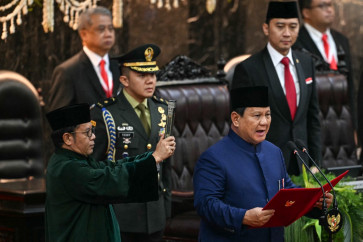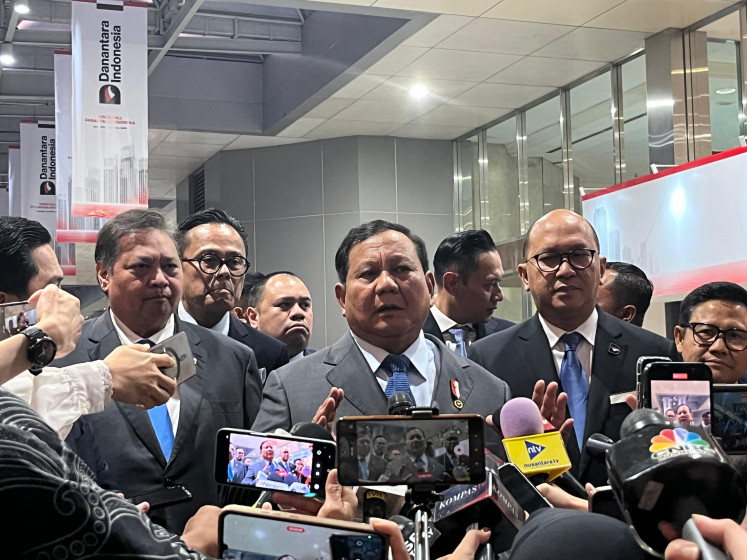Popular Reads
Top Results
Can't find what you're looking for?
View all search resultsPopular Reads
Top Results
Can't find what you're looking for?
View all search resultsASEAN declaration won’t guarantee protection
The first-ever ASEAN human rights declaration, which will be adopted by 10 member states during the ASEAN Summit on Nov
Change text size
Gift Premium Articles
to Anyone
T
he first-ever ASEAN human rights declaration, which will be adopted by 10 member states during the ASEAN Summit on Nov. 18-20 in Cambodia will not provide a legal basis to guarantee the protection of human rights in the regions.
Yuyun Wahyuningrum, senior advisor from the Human Rights Working Groups (HRWG), said that the declaration would only enable the ASEAN Intergovernmental Commission on Human Rights (AICHR) to ask for information on human rights conditions from members.
“The commission can demand a report on how far the country has implemented the protection of human rights, as stipulated in the declaration. However, it is non-binding, meaning it doesn’t include nations’ responsibilities,” she said on Monday.
Despite the shortcomings, Yuyun expected that the historic declaration, at least, could be a “wake up call” for state members to improve freedom and democracy for 600 million people in the region.
“This helps us balancing maturity levels of human rights performance among the member-states. Thereafter, we will be ready to create more binding rules, a convention, in the next five or 10 years.”
Former foreign minister Hasan Wirajuda said that the declaration ratification would have a minor impact, if not followed by democracy improvement, as it strongly correlated with human rights culture.
“We strongly believe that ASEAN cannot develop into a strong and cohesive organization if we do not address our political development gaps. Existing gaps that divide ASEAN’s 10 countries into democratic nations, those which hold regular election but not genuine ones, and at the extreme, there are authoritarian states,” he told a panel discussion in Jakarta.
He also criticized the non-interference in domestic affair, stipulated in the ASEAN Charter, as a hurdle in the resolution of gross human rights cases.
“I prefer to see the concept from a different angle. ASEAN should be a small family that strives to create a feeling of togetherness. We care for each other. Therefore, if something happens, we will discuss it as one brother to another,” he said.
Rafendi Djamin, Indonesia’s representative to the AICHR, said that the non-interference principle would not disturb human rights protection.
“Non-interference should be maintained, but it should not be implemented in a rigid way. Non-interference is based on respecting national sovereignty. By holding this principle, a nation is still open for dialogue and input from its regional or international cooperation bodies,” he said.
Rather than amending the ASEAN principle, he suggested that ASEAN should grant additional authority for AICHR, in an effort to improve human rights implementation. (yps)










